Cultural and ideological colonization does not tolerate differences and makes everything the same, resulting in the persecution even of believers.
Those were Pope Francis’ reflections in his homily morning Mass at Casa Santa Marta, which centered on the martyrdom of Eleazar, narrated in the book of Maccabees from the First Reading (Maccabees 6: 18-31).
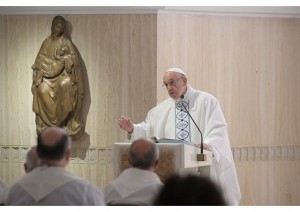
The account of this persecution began in the reading from Monday’s liturgy. Some of the Jewish people, seeing the power and the magnificent beauty of Antiochus Ephiphanes (a Greek king of the Seleucid Empire), wanted to make an alliance with him. They wanted to be up-to-date and modern, and so they approached the king and asked him to allow them “to introduce the pagan institutions of other nations” among their own people. Not necessarily the ideas or gods of those nations, the Pope noted, but the institutions. In this way, this people brought in a new culture, “new institutions” in order to make a clean break with everything: their “culture, religion, law.” This modernizing, this renewal of everything, the Pope emphasized, is a true ideological colonization that wanted to impose on the people of Israel “this unique practice,” according to which everything was done in a particular way, and there was no freedom for other things. Some people accepted it because it seemed good to be like the others; and so the traditions were left aside, and the people begin to live in a different way.
But to defend the “true traditions” of the people, a resistance rose up, like that of Eleazar, who was very dignified, and respected by all. The book of Maccabees, the Pope said, tells the story of these martyrs, these heroes. A persecution born of ideological colonization always proceeds in the same way: destroying, attempting to make everyone the same. Such persecutions are incapable of tolerating differences.
The key word highlighted by the Pope, beginning with Monday’s reading is “perverse root” – that is Antiochus Epifanes: the root that came to introduce into the people of God, “with power,” these new, pagan, worldly” customs:
“And this is the path of cultural colonization that ends up persecuting believers too. But we do not have to go too far to see some examples: we think of the genocides of the last century, which was a new cultural thing: [Trying to make] everyone equal; [so that] there is no place for differences, there is no place for others, there is no place for God. It is the perverse root. Faced with this cultural colonization, which arises from the perversity of an ideological root, Eleazar himself has become [a contrary] root.
In fact, Eleazar dies thinking of the young people, leaving them a noble example. “He gives [his] life; for love of God and of the law he is made a root for the future.” So, in the face of that perverse root that produces this ideological and cultural colonization, “there is this other root that gives [his] life for the future to grow.”
What had come from the kingdom of Antioch was a novelty. But not all new things are bad, the Pope said: just think of the Gospel of Jesus, which was a novelty. When it comes to novelties, the Pope said, one has to be able to make distinctions:
“There is a need to discern ‘the new things’: Is this new thing from the Lord, does it come from the Holy Spirit, is it rooted in God? Or does this newness come from a perverse root? But before, [for example] yes, it was a sin to kill children; but today it is not a problem, it is a perverse novelty. Yesterday, the differences were clear, as God made it, creation was respected; but today [people say] we are a little modern… you act… you understand … things are not so different … and things are mixed together.”
The “new things” of God, on the other hand, never makes “a negotiation” but grows and looks at the future:
“Ideological and cultural colonizations only look to the present; they deny the past, and do not look to the future. They live in the moment, not in time, and so they can’t promise us anything. And with this attitude of making everyone equal and cancelling out differences, they commit, they make an particularly ugly blasphemy against God the Creator. Every time a cultural and ideological colonization comes along, it sins against God the Creator because it wants to change Creation as it was made by Him. And against this fact that has occurred so often in history, there is only one medicine: bearing witness; that is, martyrdom.
Eleazar, in fact, gives the witness by giving his life, considering the inheritance he will leave by his example: “I have lived thus. Yes, I dialogue with those who think otherwise, but my testimony is thus, according to the law of God.” Eleazar does not think about leaving behind money or anything of that kind, but looks to the future, “the legacy of his testimony,” to that testimony that would be “a promise of fruitfulness for the young.” It becomes, therefore, a root to give life to others. And the Pope concludes with the hope that that example “will help us in moments of confusion in the face of the cultural and spiritual colonization that is being proposed to us.”
Vatican Radio

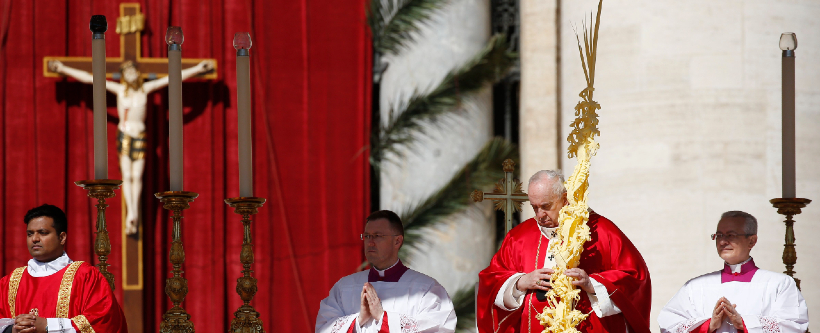
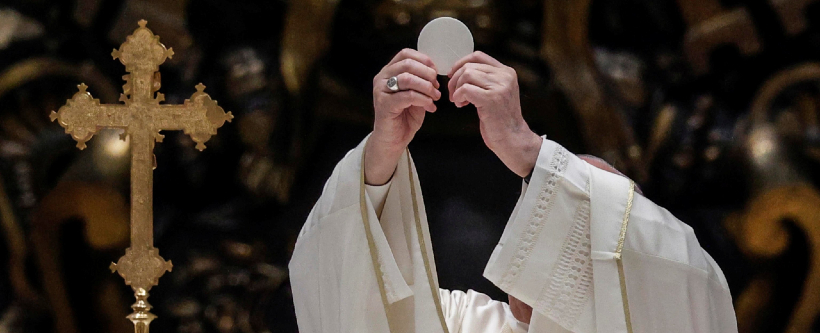
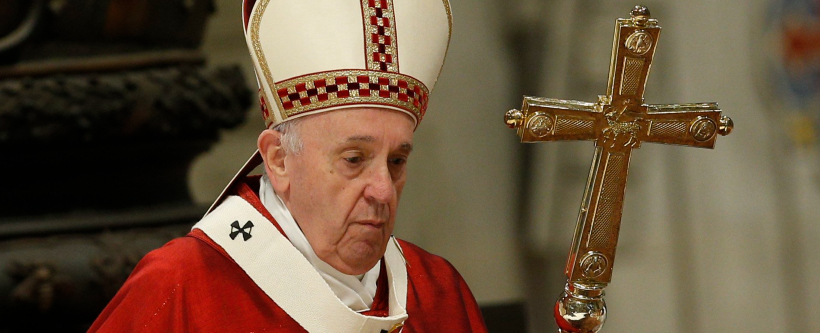
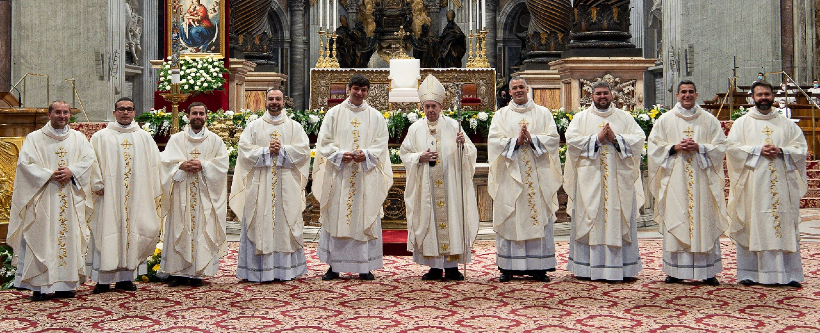
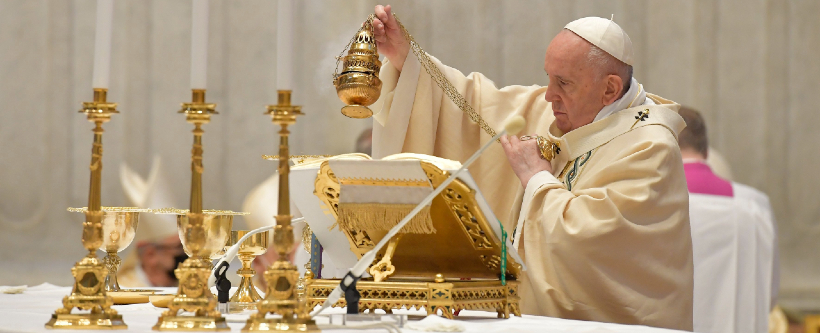
Facebook Comments